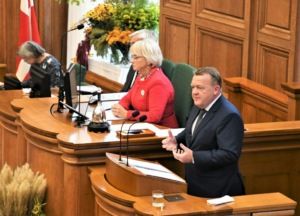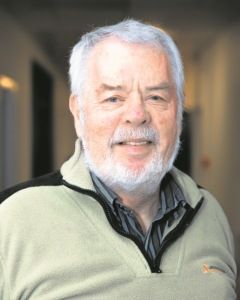Opinion
Weekly Editorial: Tuesday was the big day
Ejvind Sandal
This article is more than 7 years old.

All the usual suspects were there (photo: Hasse Ferrold)
The first Tuesday in October heralds the opening of the new session of the Danish Parliament. All the traditions are there: a royal presence and a church ceremony for all – even non-Christians.
The constitution states that Denmark is a Lutheran country and Her Majesty is head of the church – and so a member of the church. Some atheists protested by not showing up and all the Socialistisk Folkeparti MPs boycotted the ceremony. This has drawn some attention for mixing politics and religion.
Not-so-great expectations
Less attention was given to the expectations for the PM’s opening speech. Only once in 1960 has this been used as a call for a general election, and it was not expected to happen this time either. However, everybody knows that we are closing in on March/April 2019 as the latest date an election can be held.
In May 2019 we will vote for candidates to the European Parliament and, because of Brexit, Denmark gets an extra member. Candidates are popping up, but all the attention is on domestic affairs.
The big issues will be welfare and health. The environment and immigration are no longer the big issues like they were at the last election.
The economy is booming and industry is demanding skilled labour, and although the EU could provide it, the big reserves are in countries outside the EU – but they are barred by bureaucratic barriers. Here there is a split: the blue parties want to liberalise and the red parties are focused on the 400,000 unemployed Danes who will need a qualifications brush-up and motivation schemes, but who are still important voters.
Everybody is preaching green agendas, but in very vague ways. The PM has declared that electric cars will replace fossil fuel cars in 2030, but this kind of talk is cost-free as this will be an EU issue.
Draw or stalemate
The absence of divisive big issues means that Enhedslisten on the left and Nye Borgerlige on the right can tip the balance, but Dansk Folkeparti holds the central position. Polls indicate that their supporters are blue and since their position on tough immigration policy is common ground, it could be a question of government portfolios, but that remains to be seen.
The latest polls indicate a draw between the red and blue blocs. Konservative has learned from the last election that it is not wise to air ultimatums connected to their political targets, such as the removal of inheritance tax.
The only snake in Paradise is the gang shooting spree and repeated police actions in Christiania – all due to the popular demand for drugs and the fighting over markets. There are openings in the political consensus towards medical cannabis. Prohibition has failed and we are waiting for a political move to make cannabis a taxable commodity. We may be wiser on Wednesday after the debate, but that is probably too much to hope for.

About
Ejvind Sandal
Copenhagen Post co-owner Ejvind Sandal has never been afraid to voice his opinion. In 1997 he was fired after a ten-year stint as the chief executive of Politiken for daring to suggest the newspaper merged with Jyllands-Posten. He then joined the J-P board in 2001, finally departing in 2003, the very year it merged with Politiken. He is also a former chairman of the football club Brøndby IF (2000-05) where he memorably refused to give Michael Laudrup a new contract prior to his hasty departure. A practising lawyer until 2014, Sandal is also the former chairman of Vestas Wind Systems and Axcel Industriinvestor. He has been the owner of the Copenhagen Post since 2000.










































